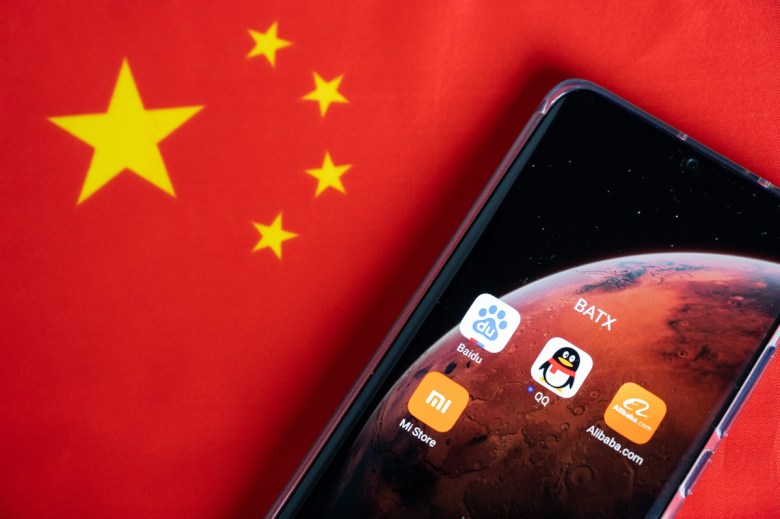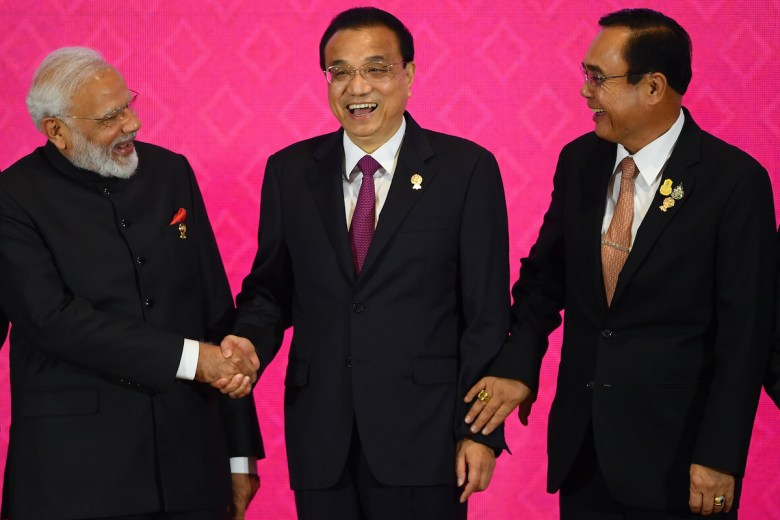TOKYO – In his game of chicken with China, Donald Trump’s imploding White House just flinched in a big way.
After bombastic threats to the contrary, the US president won’t blacklist mainland tech titans Alibaba, Baidu and Tencent after all, say the Wall Street Journal, Reuters and others.
It’s a climbdown about which neither Trump nor Secretary of State Mike Pompeo can be happy. And it’s a move that speaks to the abject failure of the US side in the Sino-US trade and tech wars.
The global media is clamoring all over the why of this story. The most probable explanation is Trump and Treasury Secretary Steven Mnuchin had an earful from Wall Street donors over not being able to invest in three of China’s sexiest companies with a combined market cap exceeding US$1.4 trillion – bigger than Australia’s economy.
Fear of how President Xi Jinping might retaliate also irked CEOs who spent four years defending Trump’s chaotic rule. Hitting Chinese giants with even the most tangential of military links would make America’s own military-industrial complex model uniquely vulnerable to retribution.
That puts US tech, aerospace, transport and myriad other sectors at risk.
What was he thinking?
Yet it’s the what with which posterity is sure to be most intrigued. What, after all, did Trump’s all-hands-on-deck assault on China Inc achieve? Not a narrowing of Washington’s trade deficit with Beijing.
As Trump hands the reins over to President-elect Joe Biden, kicking and screaming, the gap with China is at least $33 billion bigger than what Trump inherited in 2017. In the 11 months to November 2020, the bilateral deficit widened to $287 billion.

Considering the tens of billions of dollars worth of bailouts Trump’s White House had to throw at farmers facing bankruptcy – with money borrowed from Beijing – even the most superficial measures point to a trade brawl that did more harm than good.
Ditto for Trump’s multi-year obsession with China’s exchange rate. He came to office accusing Beijing’s weak yuan policies of “killing us” in terms of trade and living standards. But as Trump leaves office, the yuan is up nearly 10% across the board over the last 12 months and punters are shorting the US dollar.
“We currently observe renewed across-the-board USD weakness,” says strategist Francesco Pesole of Dutch bank ING.
The reasons for dollar pessimism are many. One is a US debt burden zooming toward $30 trillion. Another is aggressive easing by the Federal Reserve, while the People’s Bank of China largely keeps its monetary powder dry. The biggest, though, may be waning trust in US institutions.
Trump infamously reneged on the Trans-Pacific Partnership trade deal, irking allies Japan, Singapore and Australia. He pulled out of the Paris climate accord and violated the Iran nuclear deal. Trump also threatened to devalue the dollar, default on US debt and use military alliances as leverage to blackmail allies during trade negotiations.
Nor was Trump a steady hand in global business circles. How many times did Trump mislead markets with talk of a sweeping China trade deal, only to have Beijing deny it?
And now, we have the amateur-hour flip-flopping over delisting China’s telecommunications giants from the New York Stock Exchange.
Flip flop, flip flop
That was indeed the plan on December 31. The NYSE announced it would cut loose China Mobile Ltd, China Telecom Corp Ltd and China Unicom Hong Kong Ltd which destroyed billions of dollars of wealth – and many a New Year holiday.
Three days later, markets rejoiced when Trump’s team reversed the order. Only two days after that, the White House reversed the reversal. Where all this stands on January 20, when Biden assumes the presidency, is anyone’s guess, notes China expert Sari Arho Havrén.

So is what informed Trump’s crackdown on Alibaba, Baidu and Tencent. Grievance and vindictiveness? Sure. But how could an international businessman have thought strangling three of China’s tech giants wouldn’t come back and bite corporate America?
The wording of Trump’s original order is instructive, says Bill Bishop, publisher of the Sinocism newsletter.
“It is interesting for what it shows about how people in the US government are trying to redefine the thresholds for PRC government control and influence over PRC commercial and non-commercial entities,” Bishop says. “It underscores the massive difficulties the Biden team is inheriting more – what China has become under Xi than what Trump has done.”
Yet the two dynamics can’t be easily separated.
Xi’s reign since late 2012 has seen many own-goals. The fallout from his clampdown on Hong Kong marred Xi’s pledges to let market forces play a “decisive” role. An opaque and slow initial reaction to the Covid-19 crisis slammed Beijing’s global soft power.
The Jack Ma affair is also a bad look. In early November, the Alibaba founder’s Ant Group was sailing toward history’s biggest initial public offering. He’s since disappeared from public view, causing “Where’s Jack Ma?” to trend around the globe.
Trump’s boost for Xi
Overall, though, the Trump era has been more blessing than curse for Xi’s Communist Party. Trump’s first gift to Xi was leaving ally Japan standing abandoned at the TPP altar. Yet no democratic leader did more to carry Trump’s water than former Prime Minister Shinzo Abe.
Before Trump’s arrival, Abe had spent years and vast amounts of political capital prodding his Liberal Democratic Party to join the TPP. Joining hands with 11 other economies was Tokyo’s bulwark against Chinese dominance. That was a geopolitical earthquake for Abe’s Japan.

With what would’ve been history’s biggest trade deal sidelined, Xi moved to fill the void. In November, Xi’s negotiators put China right at the core of a 15 Asia-Pacific-nations deal. The Regional Comprehensive Economic Partnership, or RCEP, linked the fortunes of 3 billion people pivoting toward middle-income status.
To Natalie Blyth, HSBC’s global head of trade finance, it marked nothing less than a “tipping point” that “accelerated” the “regional shift from west to east and the rise of Asia.”
It’s hard to think of three tech companies better positioned to ride this wave than Alibaba, an e-commerce juggernaut, Baidu, China’s Google, and Tencent, a video game giant that owns the ubiquitous WeChat massaging app. Not only in the world’s most populous nation or regionally, but globally.
The reprieve these three China Inc icons are getting is as much a boon for their investors as the incoming Biden team. It’s a gut-punch to the Peter Navarro set. Navarro and fellow Washington hawks had hoped to cement Trump’s tough-on-Beijing policies, pressuring Biden to stay the course.
Mnuchin’s more free-market-orientated team at the US Treasury appears to have won the argument. The deep divisions within Trump’s White House loom large in this latest Trumpian reversal. And augur well for the year ahead for Jack Ma, Baidu’s Robin Li Yanhong and Tencent’s Ma Huateng.
That’s not to say the Navarro gang isn’t enjoying some big wins on the way out the door such as Trump’s recent ban on US dealings with Ant’s Alipay and seven other mainland apps.
It also blacklisted top mainland chipmaker Semiconductor Manufacturing International Corporation, or SMIC, and China National Offshore Oil Corporation, or CNOOC. Huawei Technologies remains in a state of flux.
Yet the number of trophies on Trump’s Oval Office wall is dwindling along with his hold on power. Trump’s much-hyped “phase one” trade deal with Xi is self-destructing. Now, so are his designs of stopping China from writing the rules of the tech revolution to come.


